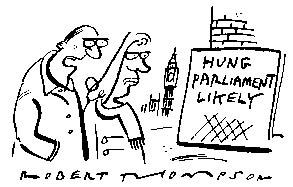In contrast to the storming of the Bastille, the spate of revolutions which have flickered across our television screens in the last two decades have tended to adopt brand images connected with colours or plants. Most of them have wilted as quickly as they flowered. Whether Burma in 2007, Armenia in 2008, Tehran in 2009, any pro-Western demonstration is now immediately given a brand. And ‘revolution’ is proclaimed even if everything stays the same as before.
The ‘rose revolution’, Georgia, 22 November 2003
The ‘rose revolution’ in Georgia turned on a disputed election. Street protests were organised by a group called ‘Kmara’. The opposition leader, Mikheil Saakashvili and his supporters started their march on Tbilisi from under Stalin’s statue in Gori and forced their way into the parliament clutching roses, thus overthrowing the incumbent president. Weeks later, Saakashvili was elected with a suspicious 96.24 per cent of the vote. Since then, his reputation has become tarnished. Last year, an EU report concluded that Saakashvili had started the conflict with Russia in 2008 when Georgia launched its military attack on South Ossetia: the subsequent stationing of Russian troops in Georgia’s two breakaway provinces will ensure that the country will never now join Nato.
The ‘Orange revolution’, Ukraine, November 2004
By the time presidential elections came up in Ukraine, the ‘rainbow revolutions’ were on a roll. The main protest group, ‘Pora’, was a carbon copy of Kmara. The West encouraged the divided Ukrainian opposition to unite behind one man, a boring stooge called Victor Yushchenko. He broke out in what looked like a bad case of acne during the campaign, which was presented as a poisoning attempt orchestrated by the Kremlin. Western media went wild but during the subsequent five years of Yushchenko’s presidency, no prosecution has ever been brought for an attempt on his life, nor for the massive electoral fraud of which he accused his opponent at the time. Yushchenko proved an ineffectual and unpopular president. On 17 January this year, he was humiliated when he received 5 per cent of the vote, beaten by a man who has promised to try to reverse Yushchenko’s artificial and anti-historical rift between Ukraine and Russia.
The ‘Cedar revolution’, Lebanon, February 2005
Shortly after George Bush demanded that Syrian troops be removed from Lebanon, a crowd spontaneously amassed in Beirut to demand that Syrian troops be removed from Lebanon. Initially, the protesters declared that theirs was ‘an intifada’, but that term did not go down well in Washington. ‘Cedar revolution’ was coined instead by the US undersecretary of state, Paula Dobriansky. The BBC showed endless pictures of the crowd and explained that, ‘Hezbollah, the majority party in the country, is the only dissenting voice in calling for the Syrians to stay.’ It did not explain how a majority opinion counts as dissent. The Syrians did withdraw their troops that year but few would say that Lebanon’s independence increased as a result: Israel duly attacked Lebanon in 2006.
The ‘tulip revolution’, Kyrgyzstan, March 2005
Protesters ransacked the presidential palace in Kyrgyzstan in late March, but not before various brand names for the unrest had been tried and discarded — ‘lemon’, ‘pink’, ‘silk’ and ‘daffodil’. ‘Tulip’ stuck only because the president said there would be no colour revolution in his country, shortly before there was one. The man brought to power in this delightful display of flower power, Kurmanbek Bakiev, was duly confirmed in office with a modest 89 per cent of the vote. Despite initial hopes, Bakiev’s time in office has been sullied by political murders, corruption and economic crises. There are now regular riots protesting against him, but he remains in office.
The ‘denim revolution’, Belarus, March 2006
By 2006 the whole idea of revolution branding was wearing a bit thin, so what more fitting image than the failed attempt to unseat the Belarusian president, Alexander Lukashenko, than denim? Only a very ageing trendy could still associate that material with radicalism today. But this ‘revolution’ fizzled out after it mustered little more than a few spotty adolescents standing in jeans carrying posters in support of President Bush.
John Laughland is director of studies at the Institute of Democracy and Cooperation in Paris, www.idc-europe.org.






Comments